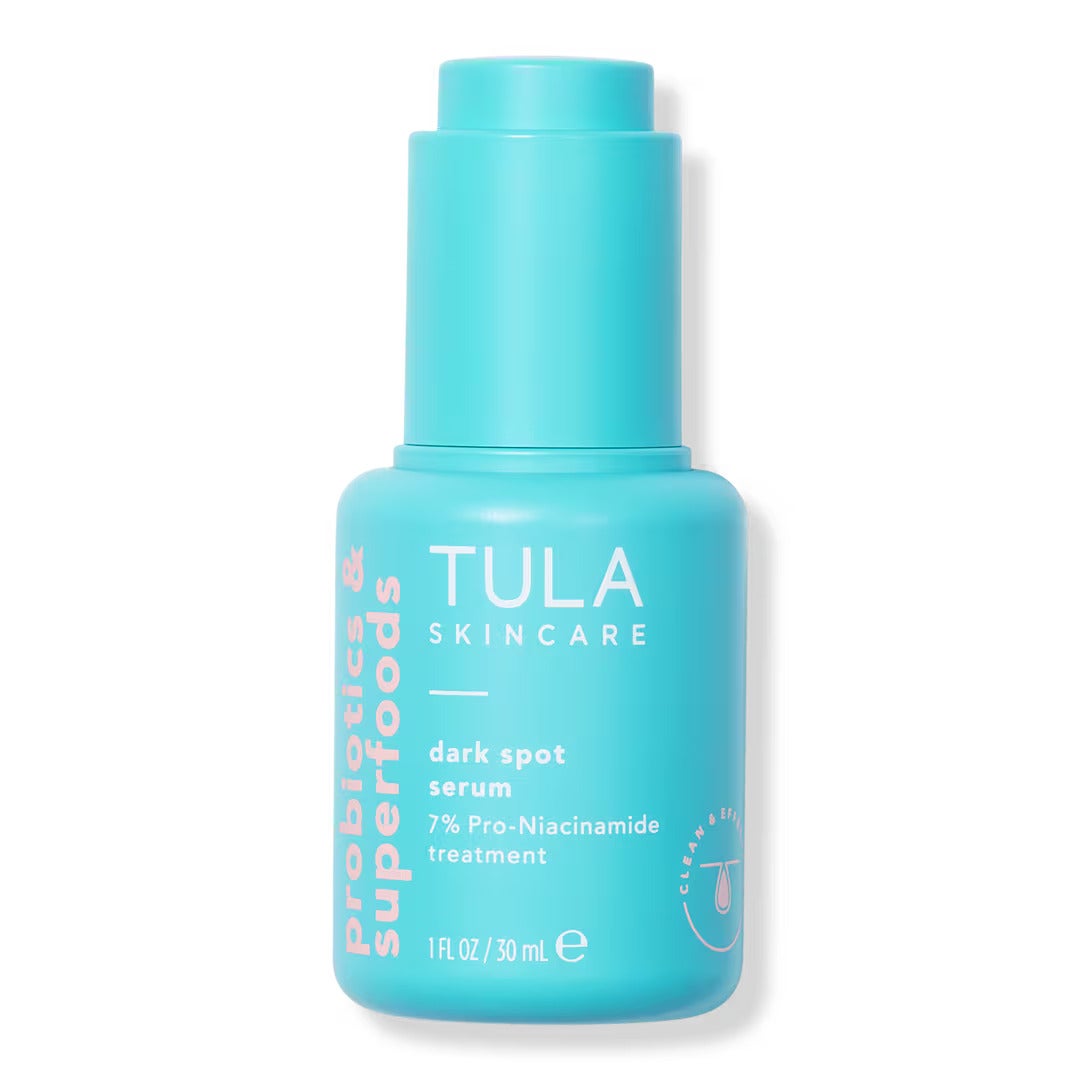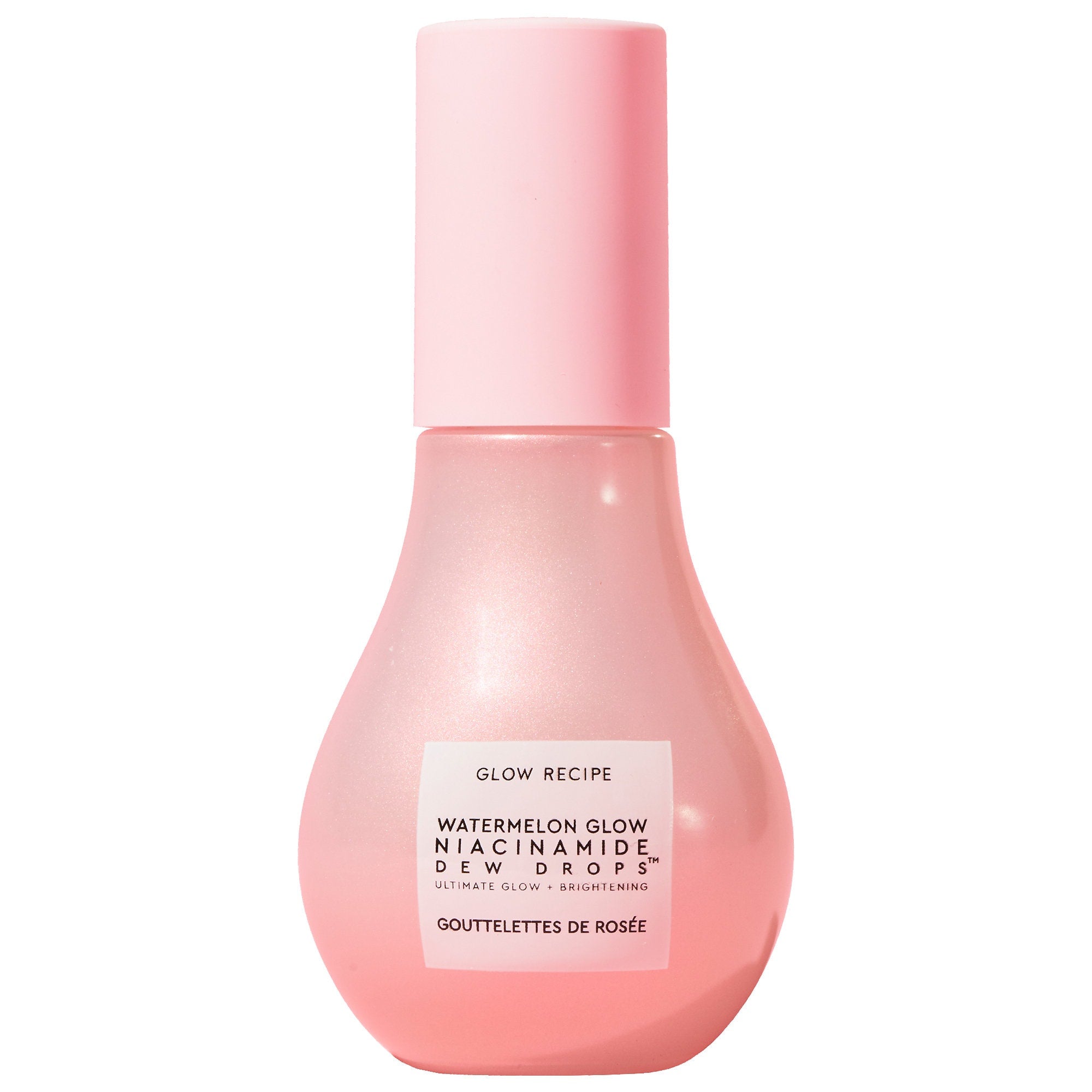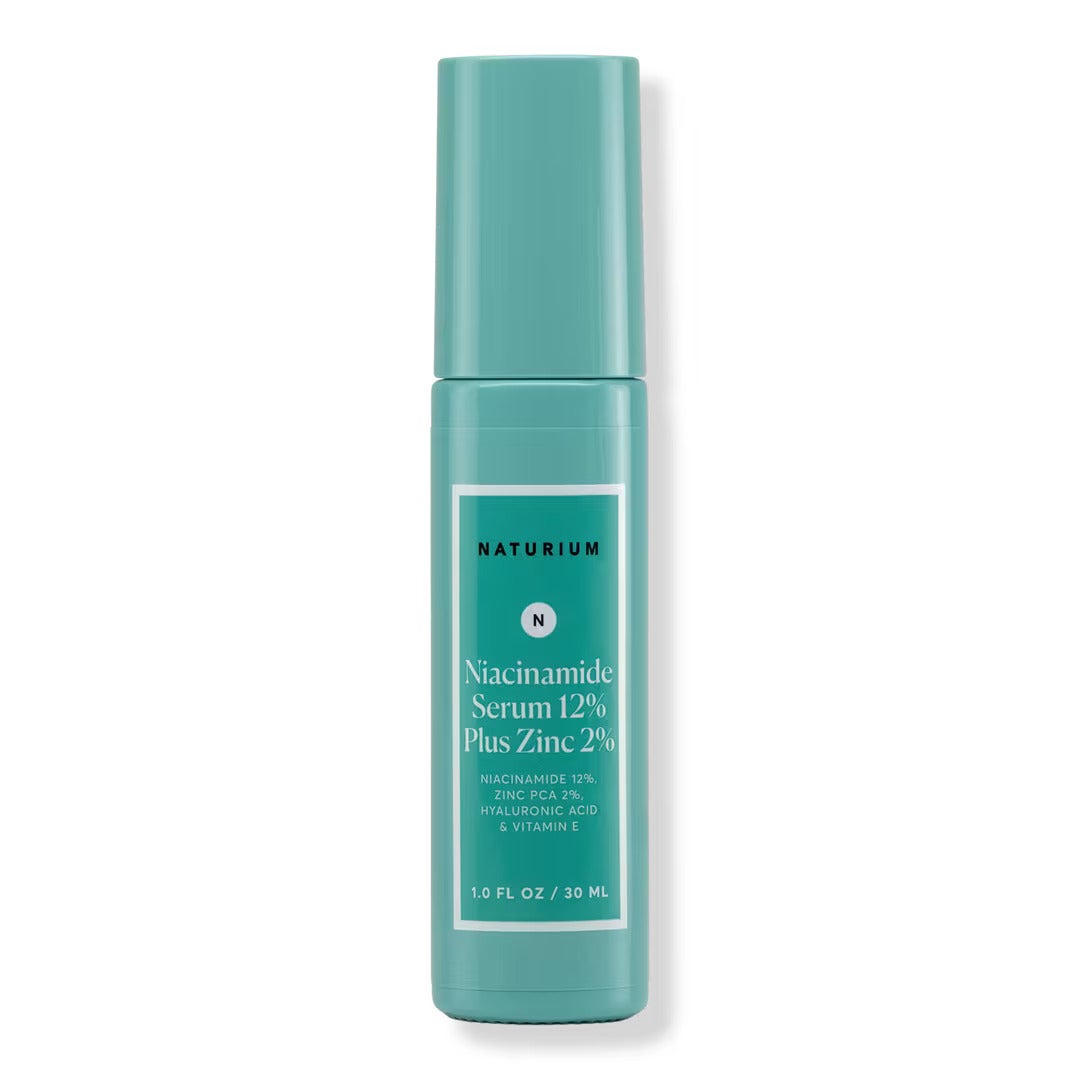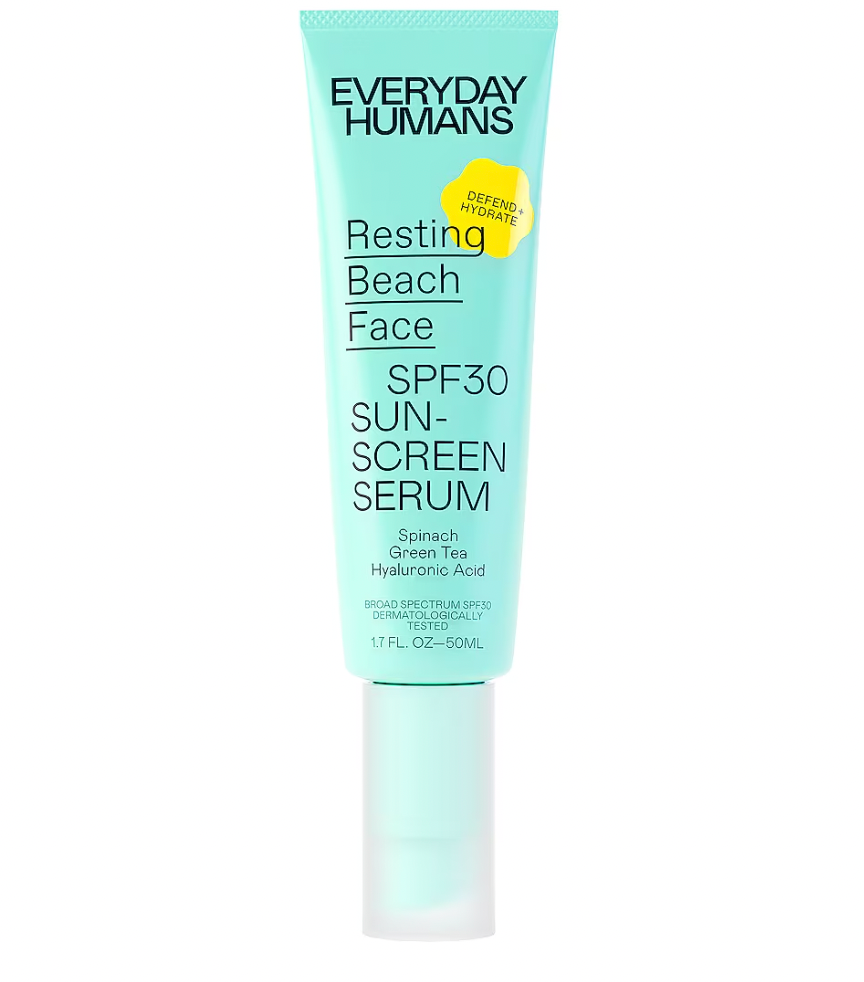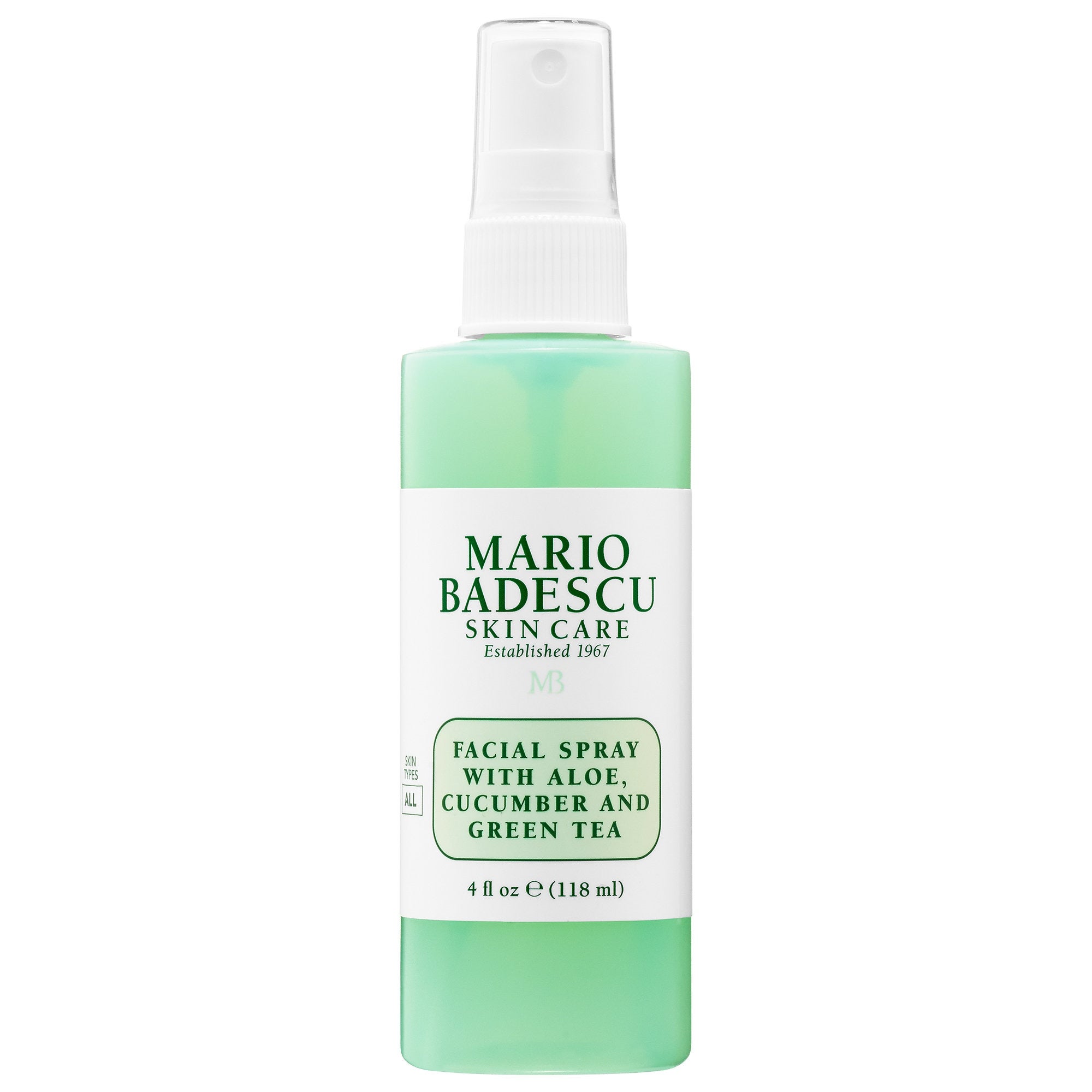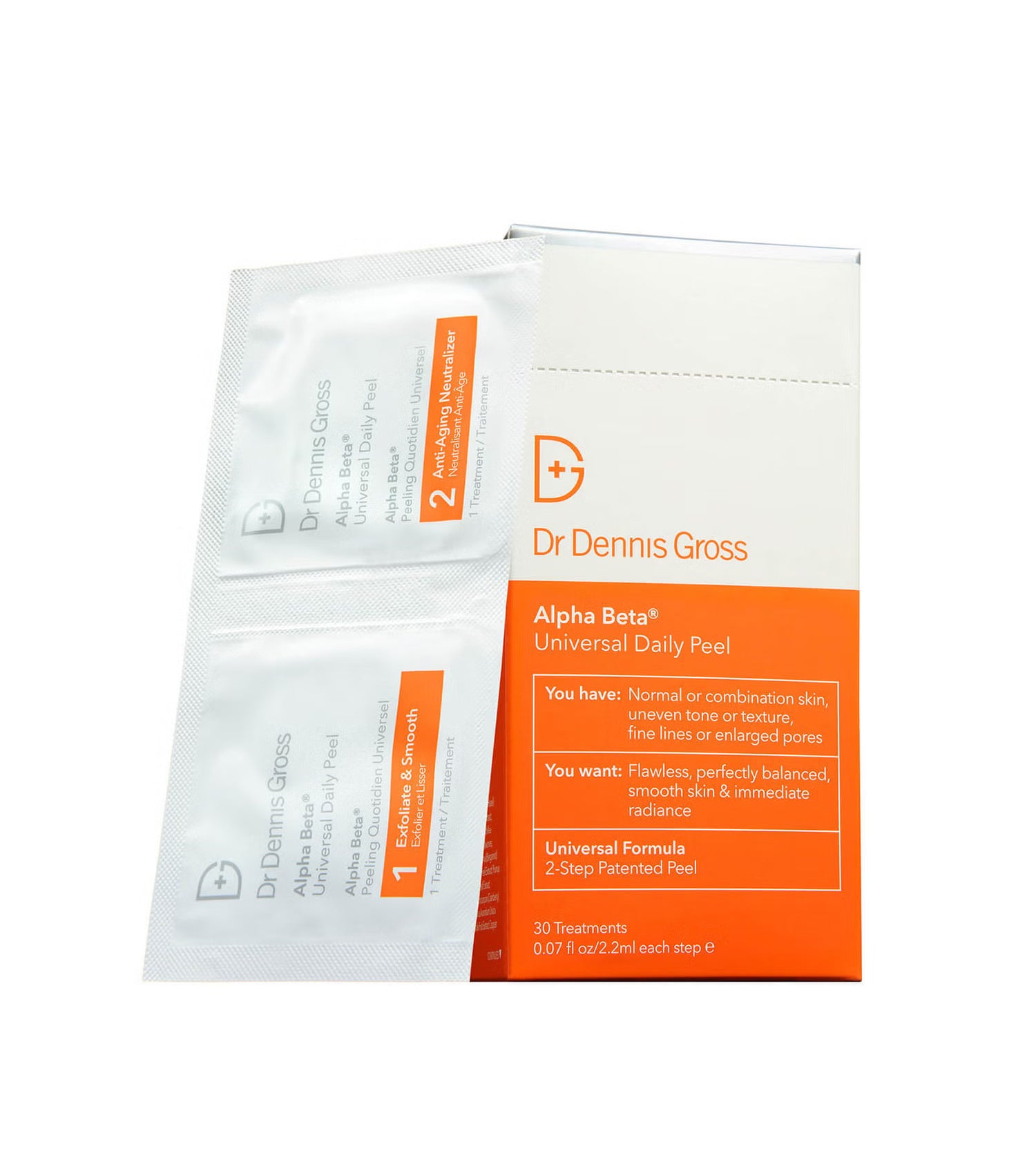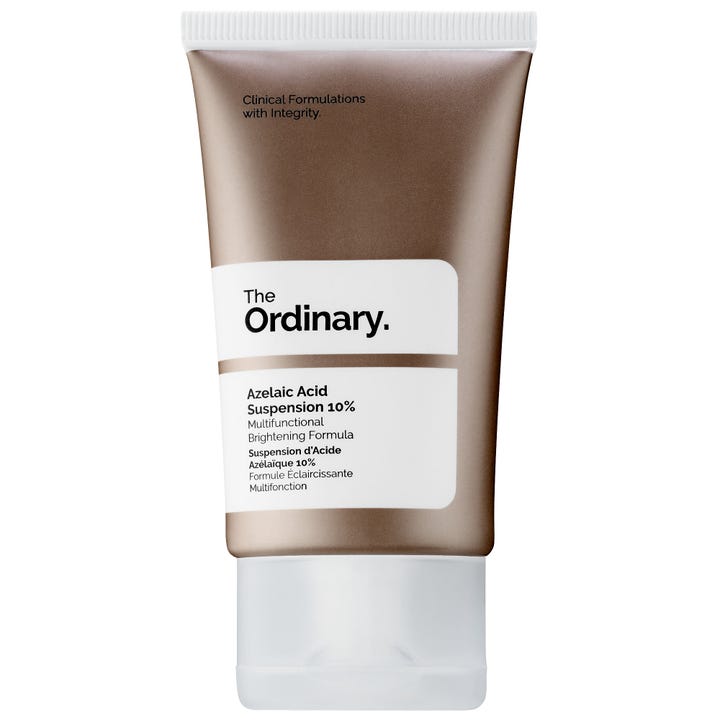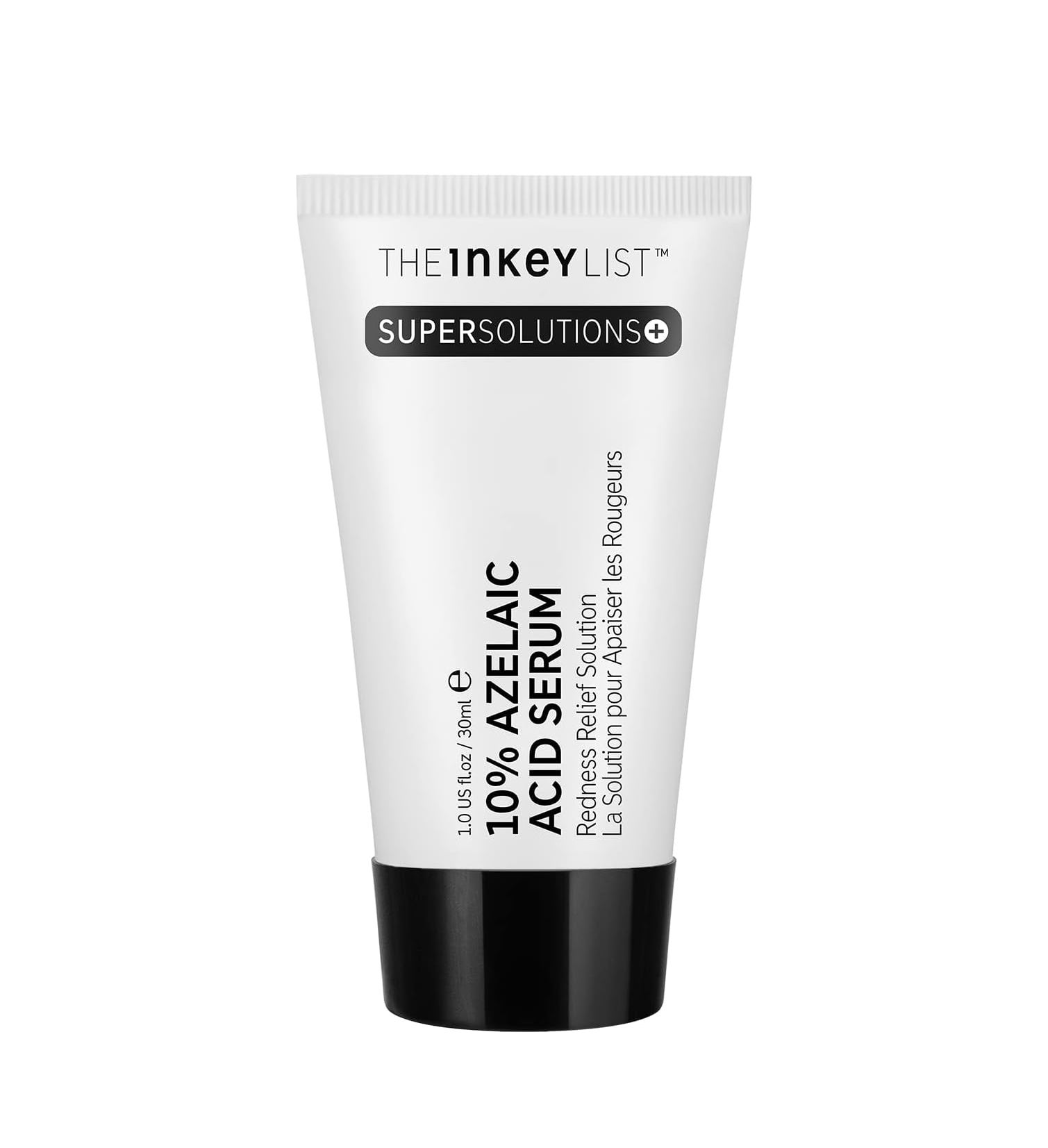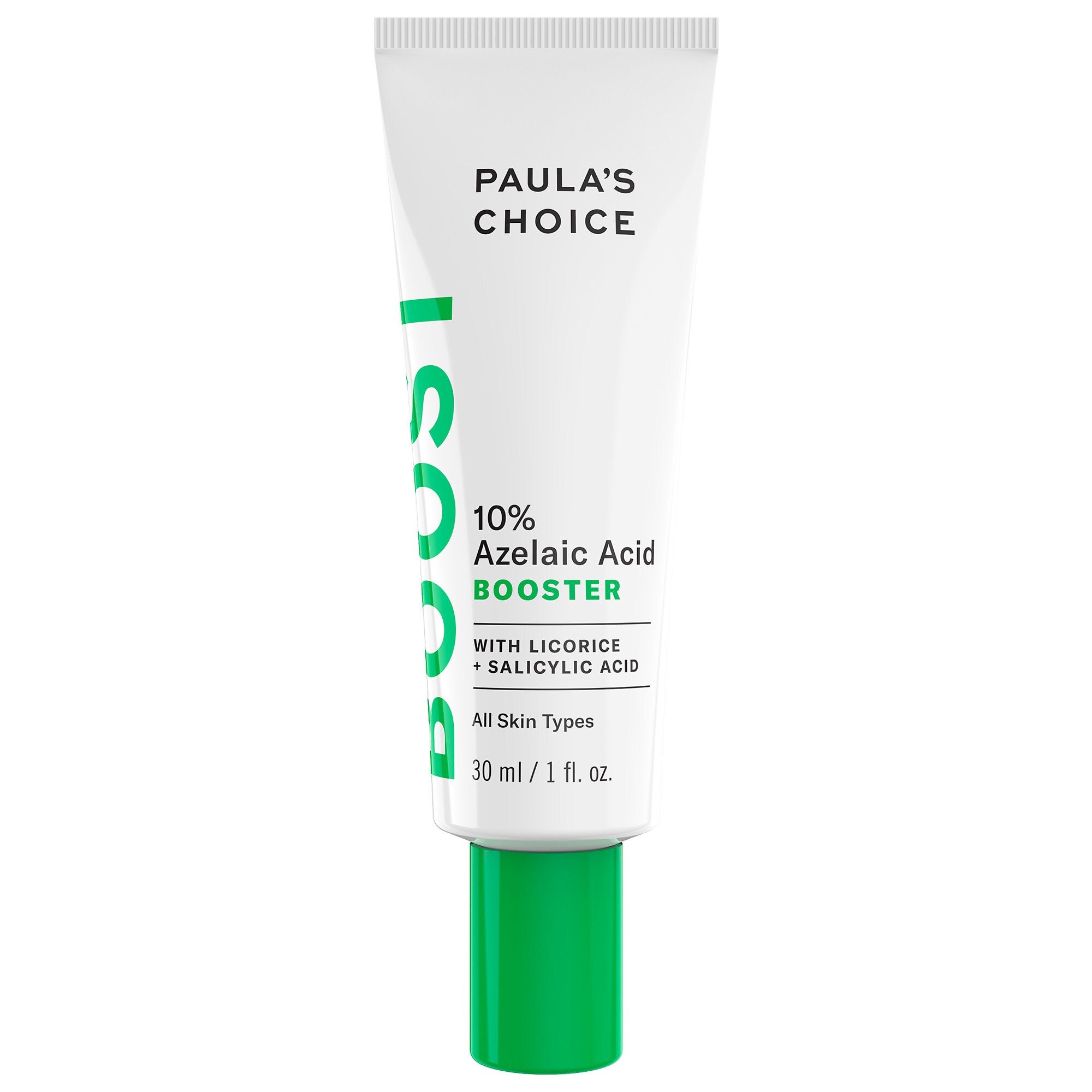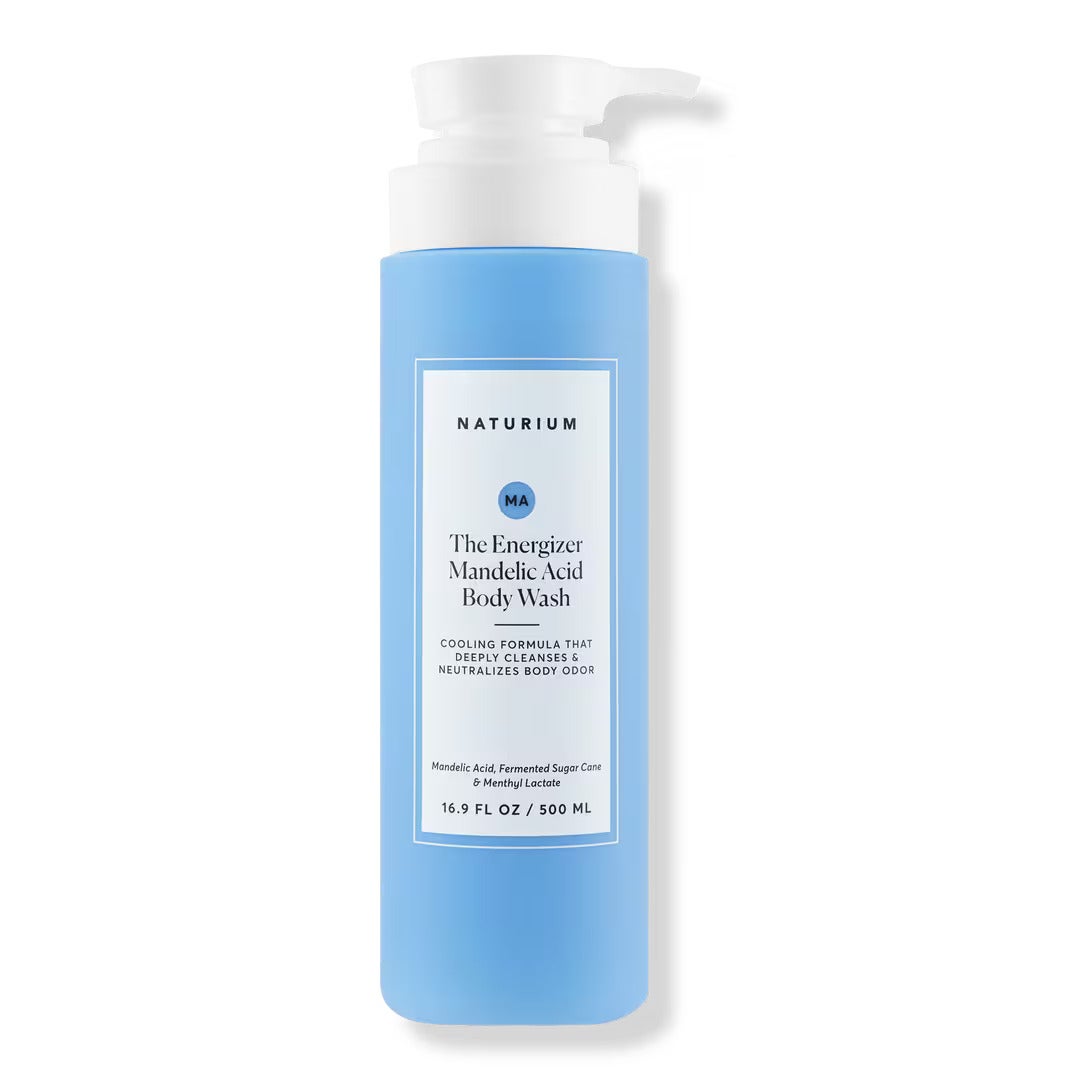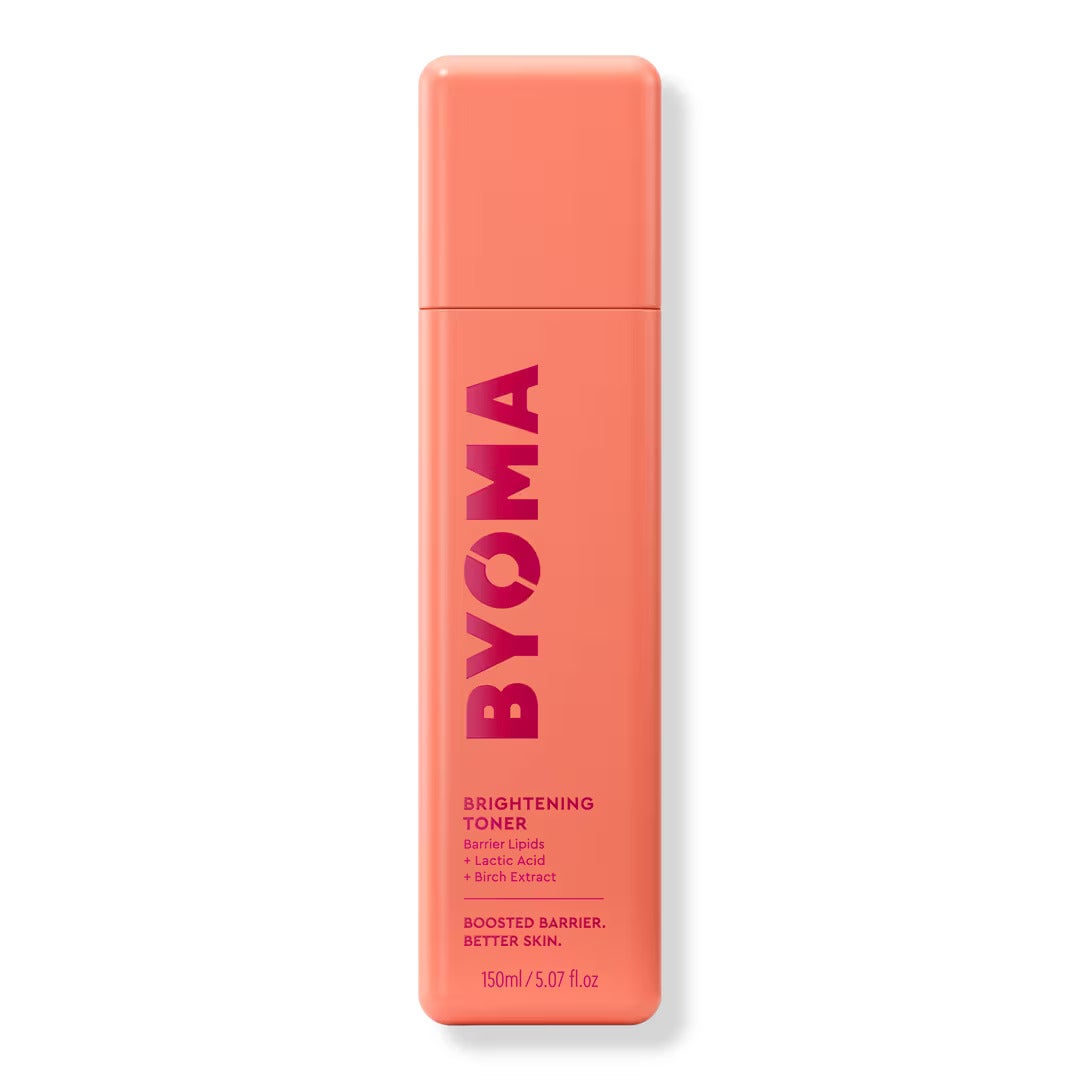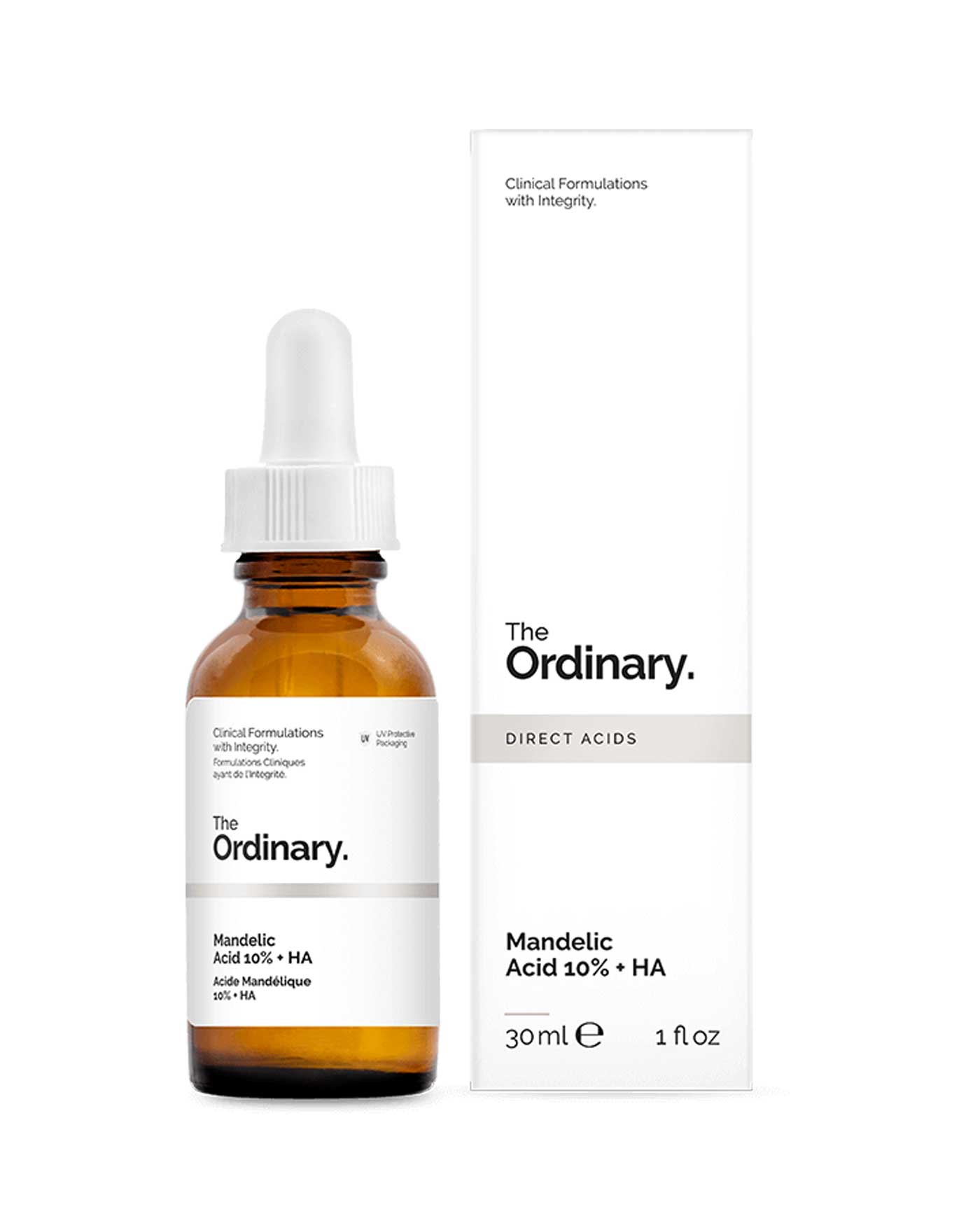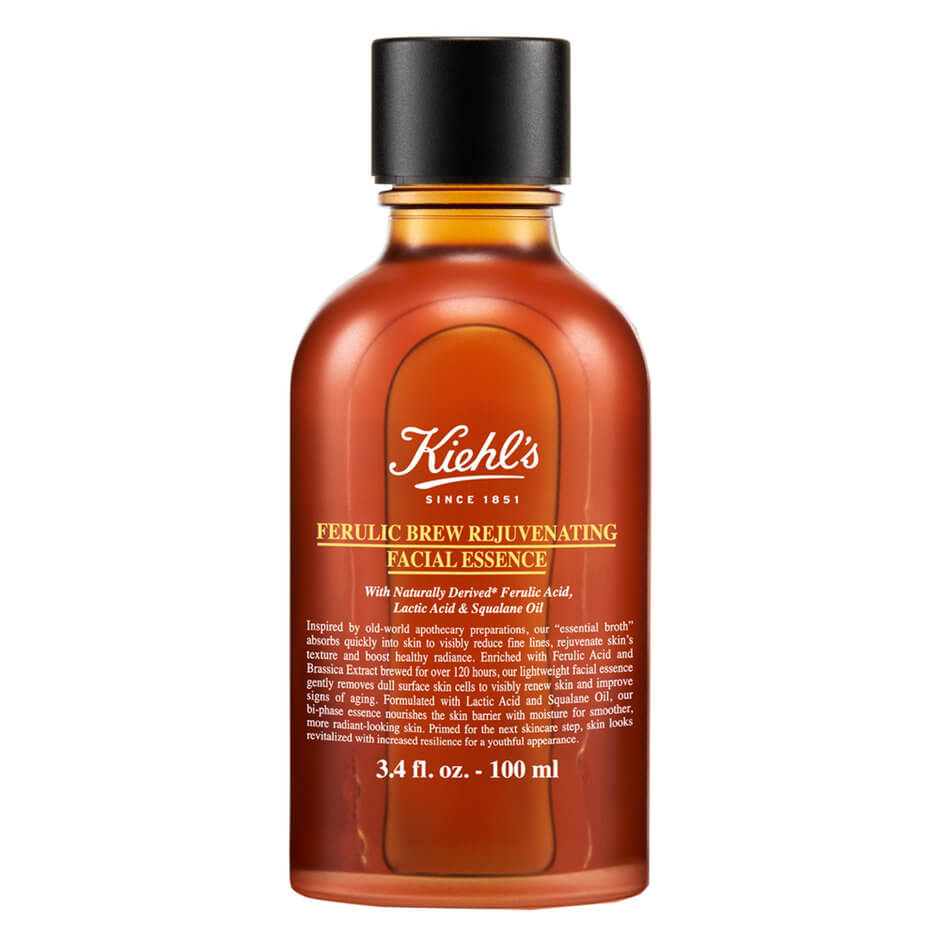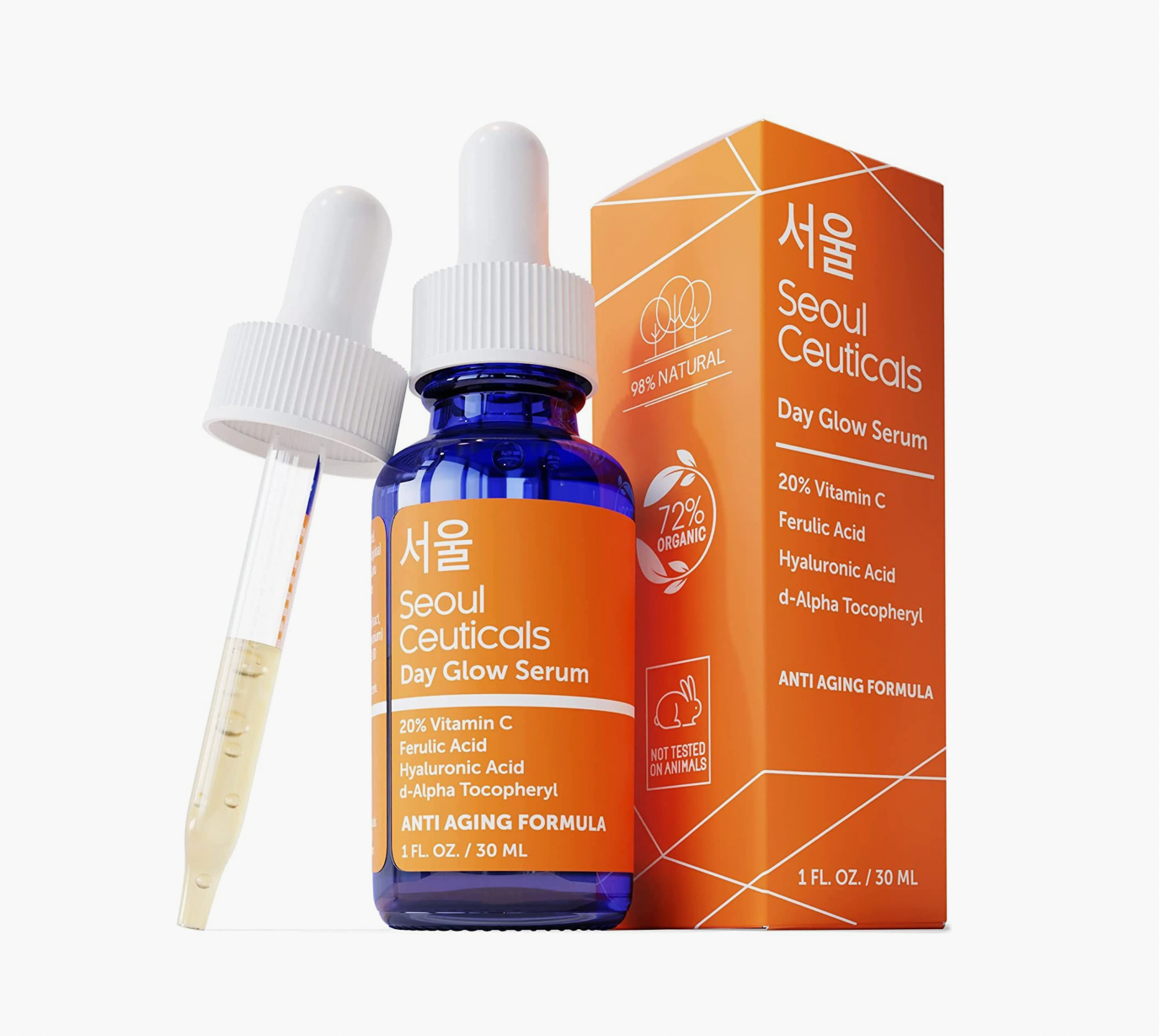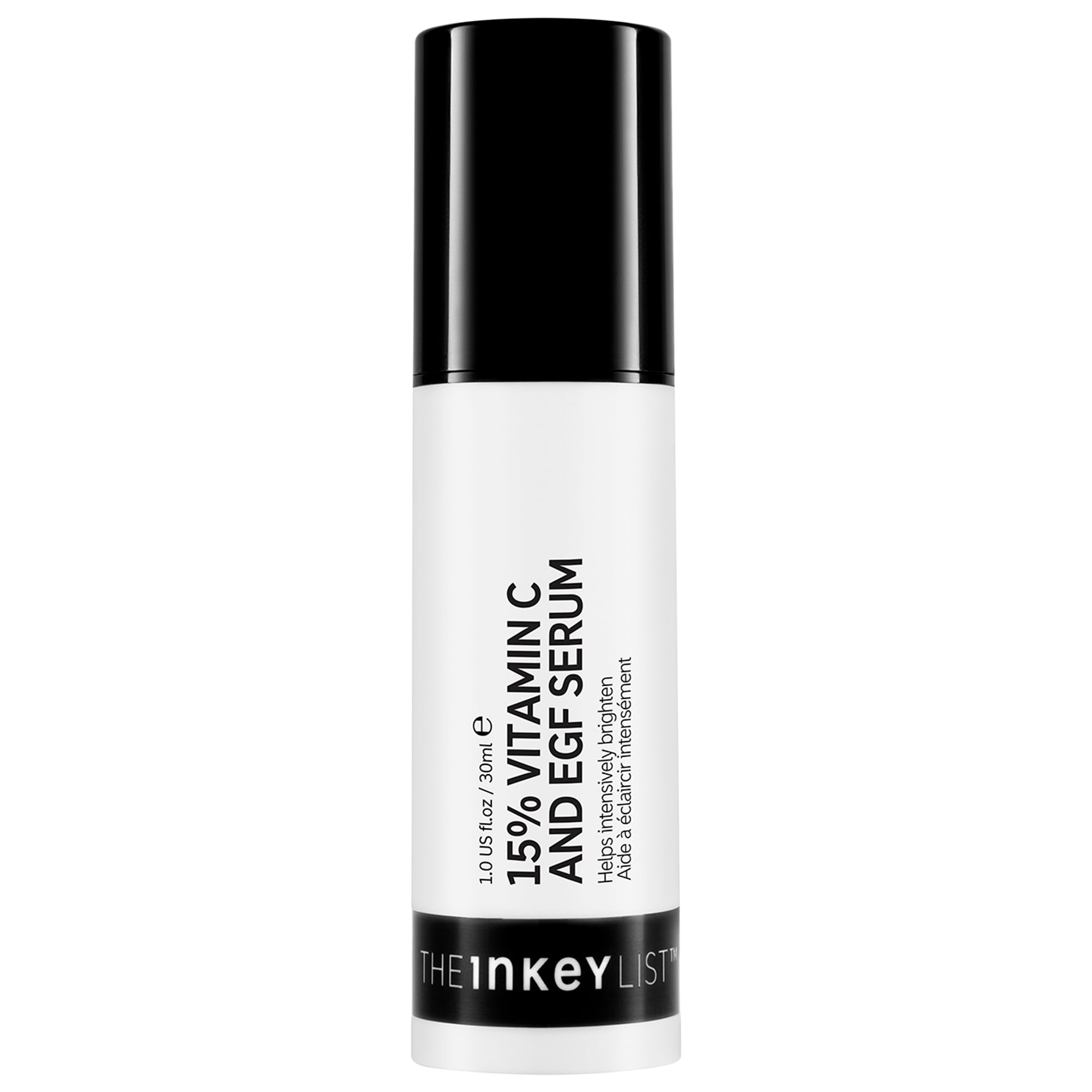Sensitive To Vitamin C? These 5 Alternatives Do The Same Job Without Irritation
All linked products are independently selected by our editors. If you purchase any of these products, we may earn a commission.
Photographed by Kristine Romano.
Vitamin C is undoubtedly a household name in skincare; most of us have probably tried a vitamin C serum at some point, and might even have one sitting on the bathroom shelf right now. While it is a powerhouse antioxidant for protecting skin against pollution, evening out skin tone, fading dark spots, and giving you an all-around glow, it can be a little too much for those of us with sensitive skin.
“Vitamin C, especially in its pure form (ascorbic acid), can sometimes cause irritation, especially at higher concentrations,” explains consultant dermatologist Dr. Rakesh Anand. “It has a lower pH [between 3 and 3.5, whereas the average adult has a skin pH of 5.7]. This sometimes leads to disruption of the skin barrier [the outermost layer of the skin], resulting in redness or a stinging sensation.” It’s also notoriously unstable and can degrade quickly when exposed to light, heat, or air.
AdvertisementADVERTISEMENT
If your skin hasn’t taken to vitamin C all that well, there’s no need to fret: There are plenty of gentler alternatives to vitamin C that still deliver those glow-boosting, spot-fading, and antioxidant benefits — minus the irritation. We went straight to the experts to get the lowdown on the best vitamin C alternatives and, of course, their go-to product recommendations.
Niacinamide
What is niacinamide, and why is it good for the skin?
Niacinamide, also known as vitamin B3 or nicotinamide, has been deemed a powerhouse skincare ingredient in recent years thanks to its ability to address a laundry list of skin concerns. We asked Shenaz Sharrif, advanced aesthetics practitioner and founder of The Face and Body Clinic, to give us a detailed rundown. “Niacinamide strengthens the skin's natural barrier, which helps to retain moisture and protects against environmental stressors such as pollution and UV radiation,” she says. “It also reduces the appearance of enlarged pores, evens out skin tone, diminishes dullness, and makes the skin more plump and firm.”
One big advantage this ingredient has over vitamin C is that niacinamide doesn’t oxidize as quickly, which means it will remain stable and effective for longer periods, even when the product is exposed to light and air. One crucial thing you should never forget? Follow up with your favorite sunscreen; niacinamide's antioxidant properties help enhance the skin's resilience against environmental damage.
The best niacinamide skincare, according to experts
Shop This
Sharrif highly rates Paula’s Choice 10% Niacinamide Booster, $49. “This lightweight serum is designed to be mixed with your moisturizer or used on its own,” she explains. “It helps to refine skin texture, reduce the appearance of pores, and brighten dull skin. Suitable for all skin types, it’s a powerful addition to any skincare routine.”
AdvertisementADVERTISEMENT
For a more budget-friendly option, Sharrif recommends The Ordinary Niacinamide 10% + Zinc 1%, $10.80. “This affordable yet highly effective serum combines a high concentration of niacinamide with zinc to target blemishes, congestion, and uneven skin tone,” she says. “It’s a popular choice for those looking to reduce the appearance of pores and improve skin texture.”
More niacinamide skincare we love
Green Tea Extract
What is green tea extract, and why is it good for the skin?
Make no mistake: This skincare ingredient has very little to do with your favorite green tea latte. Green tea extract is derived from the leaves of the camellia sinensis plant and is known for its anti-inflammatory and soothing properties. “This ingredient is packed with powerful antioxidants called polyphenols, which help protect your skin from damage caused by the environment,” says Amanda Azzopardi, advanced nurse practitioner. “However, it’s much more gentle on the skin than vitamin C, given that it’s a natural antioxidant with soothing properties. Additionally, green tea extract helps reduce oil production and fight acne, and is also great at calming rosacea.”
The best green tea extract skincare, according to experts
Shop This
When it comes to skincare with green tea extract, K-beauty brands are your best bet. Azzopardi recommends the Innisfree Green Tea Hyaluronic Acid Refillable Serum, $30, which is enriched with green tea seed. “This is my go-to hydrating serum to soothe and protect my skin,” she says.
More green tea extract skincare we love
AdvertisementADVERTISEMENT
Azelaic Acid
What is azelaic acid, and why is it good for the skin?
Azelaic acid is probably a familiar name to anyone with acne-prone skin. Known for its anti-inflammatory and brightening properties, the ingredient is commonly used to treat acne and rosacea. It also helps reduce pigmentation and gently exfoliates the skin, making it look brighter and more even in tone. “Azelaic acid is generally milder on the skin compared to vitamin C, particularly for sensitive or acne-prone skin,” says Dr. Rakesh Anand, consultant dermatologist. “It’s well-tolerated by most skin types, even at higher concentrations, and is less likely to cause irritation, redness, or stinging.”
One thing to keep in mind is that while azelaic acid is generally well-tolerated, it can increase your skin’s sensitivity to the sun, so it’s important to use sunscreen during the day. “When you’re using azelaic acid, combining it with other strong active ingredients like retinoids or exfoliating acids might increase irritation,” Anand adds. “Try introducing them gradually to avoid any adverse reactions.”
The best azelaic acid skincare, according to experts
Shop This
Anand recommends SkinCeuticals Phyto A+ Brightening Treatment, $110, a lightweight moisturizer with 3% azelaic acid aimed to target clogged pores, redness, and excess oil production. It also contains plant-based ingredients to calm the skin, such as olive leaf and thyme.
More azelaic acid skincare we love
Mandelic Acid
What is mandelic acid, and why is it good for the skin?
Mandelic acid is an alpha hydroxy acid (AHA) from bitter almonds and is commonly used as a gentle exfoliator, but like vitamin C, it boasts antioxidant properties, too. “Mandelic acid has a larger molecular structure compared to other AHAs, like glycolic acid, which allows it to penetrate the skin more slowly and reduce the risk of irritation,” explains Anand. It’s effective in treating a range of skin concerns, including dullness, texture, acne, and hyperpigmentation.
AdvertisementADVERTISEMENT
The best mandelic acid skincare, according to experts
Shop This
The Medik8 Surface Radiance Cleanse, $27, is a favorite of both Anand and myself. It’s a clear gel that foams up easily and leaves my pores feeling freshly decongested, without drying out my skin. Ingredients like mandelic acid, lactic acid, and salicylic acid gently exfoliate and brighten up the complexion.
More mandelic acid skincare we love
Ferulic Acid
What is ferulic acid, and why is it good for the skin?
Ferulic acid is a powerful antioxidant found naturally in the cell walls of plants like oats, rice bran, and apples. While it works well on its own for neutralizing harmful free radicals (unstable molecules emitted from air pollutants and cigarette smoke, for example) and reducing signs of aging, it’s often found in combination with other antioxidants, such as vitamin C and niacinamide, to maximize their effects. “Ferulic acid helps stabilize vitamin C, making it more effective and longer lasting,” explains Anand. “In fact, when combined with vitamin E and ferulic acid, vitamin C’s benefits — brightening skin, reducing hyperpigmentation, aiding collagen production — are significantly boosted.”
The best ferulic acid skincare, according to experts
Shop This
Many popular serums often include a mix of ferulic acid and other active ingredients. This is true in the case of SkinCeuticals C E Ferulic, $182, a cult-favorite serum — and a particular favorite of Anand’s. “Combining vitamin C, vitamin E, and ferulic acid for a powerful antioxidant boost, this serum helps protect your skin against environmental damage [such as UV rays and pollutants] and improves the appearance of fine lines,” he says.
More ferulic acid skincare we love
AdvertisementADVERTISEMENT







